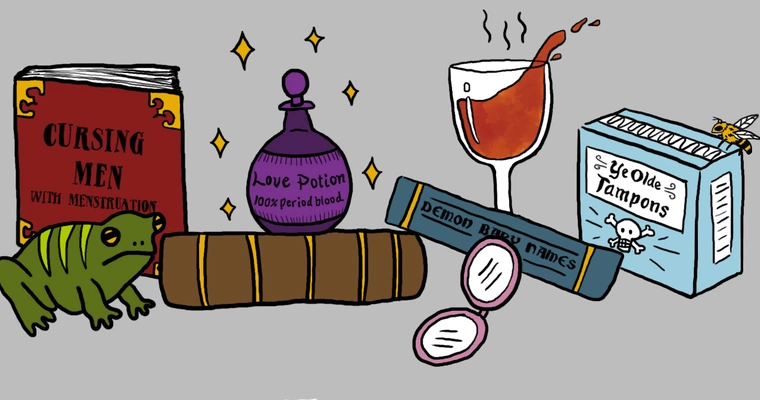Menstruating women ruin everything: 7 historical myths about periods

Through the ages, women’s cycles haven’t exactly been painted in a positive light. Even the word “taboo” comes from the Polynesian word “tapua,” which means menstrual flow. Looking back through history, you can find everything from beliefs that periods cause crops to fail to cultures that think a menstruating woman can turn wine sour.
Think those myths are bonkers? We’re just getting started. Here are seven more historical myths about periods to make you happy you’re alive now and not then.
1. Menstruating women ruin everything.
The ancient Roman philosopher, author, naturalist, and commander Pliny the Elder believed that women basically ruined everything when menstruating. His list of the mystical, terrible powers associated with menstruation included seeds becoming sterile, gardens parched, and fruit falling from the trees. Menstruating women could also “dim the brightness of mirrors, blunt the edge of steel, and take away the polish from ivory” with just a look—and kill a whole swarm of bees.
2. Burnt toad will help with a heavy flow.
If you thought the suggestions your auntie gave you for easing period pains were kind of weird, consider this: Medieval Europeans believed that burning up a toad and then wearing the ashes in a pouch near your vagina would slow a heavy flow. Anyone else feeling extra thankful for modern medicine right now?
3. Babies conceived during menstruation will be monsters.
There’s an old French belief that babies made during a woman’s period would be “puny, languid, and moribund, subject to an infinity of fetid maladies, foul and stinking.” Monster babies! (At least they didn’t believe the myth that it’s impossible to get pregnant if you have sex around that time of the month.)
4. Period blood causes leprosy.
But also maybe cures it? Medieval Europeans seemed a little fuzzy on this one. On the one hand, the nun Hildegard von Bingen wrote that period blood cured leprosy. On the other hand, medieval Jewish people thought that having sex with a woman while she had her period actually caused leprosy. Conclusion: Period blood was somehow linked to leprosy. Exactly how is unclear.
5. Women on their periods steal men’s “powers.”
Some groups in the Torres Strait Islands (which are near Australia) believed that any contact with a woman on her period would result in the loss of a man’s “masculine powers.” Their neighbors, the Mae Enga tribe of New Guinea, took it even further with their belief that contact with a menstruating woman would kill a man.
6. Periods are a result of women’s laziness.
The ancient Greek physician, surgeon, and philosopher Galen believed that periods were a result of women accumulating “a great quantity of humours” because they live “continually at home,” don’t do any hard labor, and aren’t exposed to the sun. Menstruation then was a relief of that buildup of “humours.” So: Periods were women’s punishment for being lazy.
7. Period blood can be used as a love charm.
Period blood’s magic extends to the world of love: Our old friend Pliny believed that men used their wives’ menstrual blood to keep them faithful. (We have to wonder how they got their hands on it without the period powers making them as sick as those bees and trees?) Other “folk wisdom” found that mixing period blood in a man’s meal would make him fall in love with you.
These days the most we have to deal with (at least in the U.S.) is people thinking periods are “gross”—which is way better than thinking women go around killing swarms of bees. So try out one of the many apps to help you track and learn more about your cycle, and leave the myths in the past.
XOXO,
Bedsider
P.S. If you’ve been asking yourself whether now is the time to try long-acting birth control, here are some things to consider.
How do you feel about this article?

Heat up your weekends with our best sex tips and so much more.